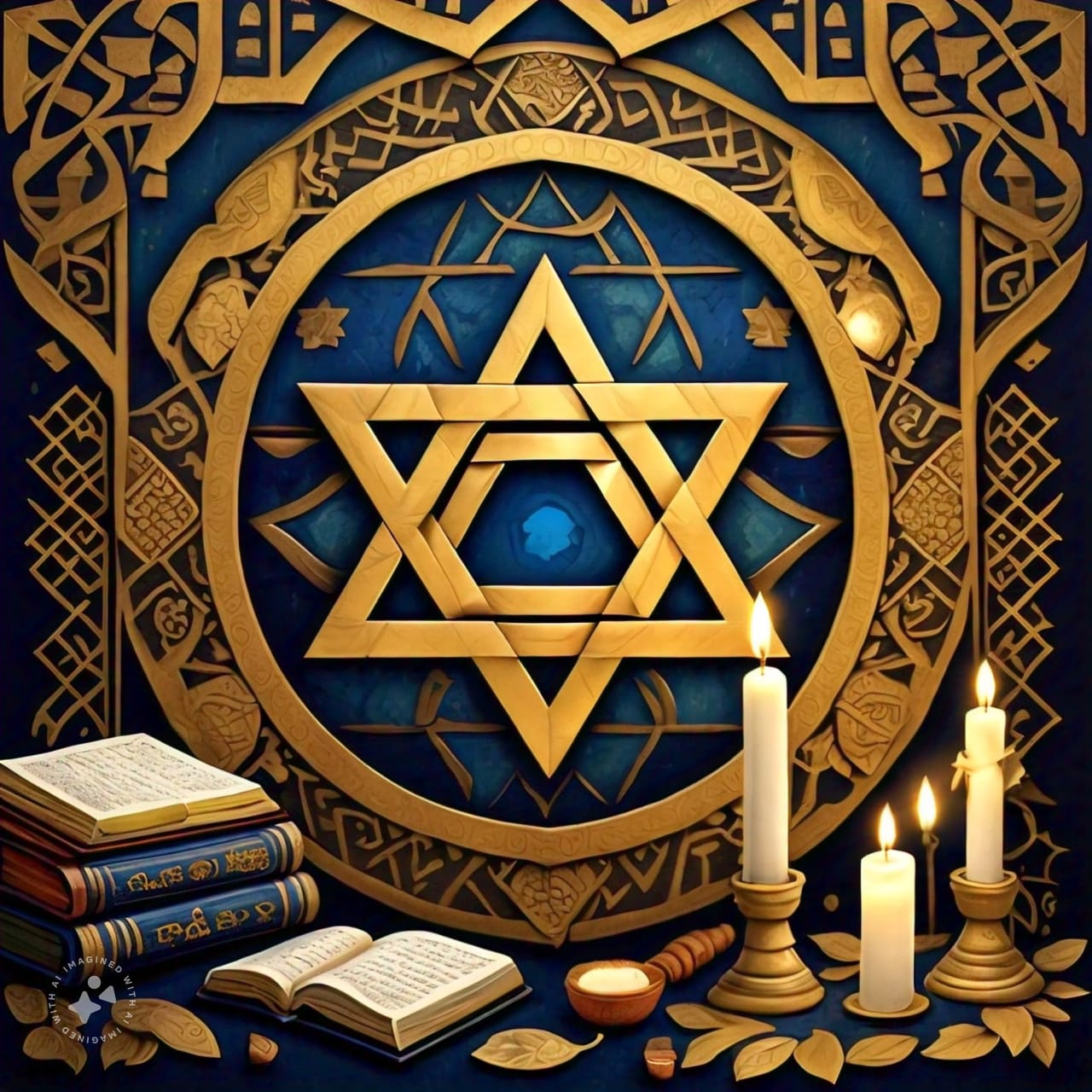The Beauty of Judaism as an Ethno-Religion: Embracing Diversity, Tradition, and Spiritual Connection

Judaism is a truly unique phenomenon in the landscape of world religions. It's more than just a faith; it’s an ethno-religion, a heritage that encompasses a profound spiritual lineage and a rich cultural history. While the term "Jew" denotes ancestry from Judea, the ways in which Jews identify and practice their traditions are incredibly diverse—spanning the spectrum from strict Torah observance to atheism, cultural participation, and mystical exploration. Unlike other religions, such as Christianity or Islam, where a lack of belief in God often results in exclusion from the community, Judaism embraces this diversity of belief. Additionally, Judaism does not actively seek to convert others, which further highlights its emphasis on cultural and ancestral connection over doctrinal uniformity.
This diversity is a testament to the adaptability and resilience of Jewish tradition. There are Jews who meticulously follow the Torah's commandments and those who find meaning in celebrating holidays or sharing cultural practices without adhering to religious beliefs. Similarly, atheistic Jews often cherish the communal, historical, and cultural aspects of Judaism, much like Native Americans who pass on dances and songs even if they don't hold their creation myths as literal truths. These traditions—whether dances, songs, or rituals—are not merely acts; they are vessels of pride, identity, and intergenerational connection. Hearing a child sing an ancient melody or light Shabbat candles can bring an overwhelming sense of joy and continuity to a parent.
Rediscovering Judaism in the Context of World Traditions
As I grew older, I began exploring other world religions and spiritual traditions—Buddhism, Hinduism, Paganism, and Native American spirituality. Each offered profound insights and practices: meditation, chanting, visualization, and a sense of connection to something greater than the self. I was moved by the beauty of these traditions but found myself surprised and delighted when I recognized these same elements within my own Jewish heritage.
Judaism, particularly its mystical branches, contains rich spiritual practices that can inspire and uplift. Meditation, visualization, and chanting are central to Jewish mysticism, as found in Kabbalah and Chasidut. These practices invite us to connect with holiness, embody godliness, and bring more peace and beauty into the world. Judaism teaches that the divine is present in all things and that our actions can reveal sparks of holiness, creating a better reality.
A Father's Responsibility and Privilege
As a father, I see it as both a responsibility and a privilege to pass on these traditions. Teaching my child the songs, ceremonies, and values of our ancestors isn’t just about preserving history—it’s about enriching her life with meaning and connection. It's an opportunity to provide her with roots, a sense of identity, and tools to navigate the modern world with wisdom and grace.
In a world where many people lack a connection to a spiritually rooted lineage, the temptation to appropriate the traditions of others is strong. While cross-cultural learning can be beautiful, it’s often done without understanding or respect, diluting the sacredness of those traditions. If you are fortunate to have a lineage like Judaism, you don’t need to seek elsewhere. Judaism provides a wellspring of wisdom, from ancient teachings to modern adaptations that can harmonize with contemporary life.
Preserving Traditions in the Modern World
Our traditions are precious and fragile. The forces of colonialism and modern pop culture often erode ancient practices, leaving many spiritual lineages lost or distorted. This makes the preservation of Jewish rituals and stories even more vital. These traditions carry the wisdom of survival, joy, and community across millennia. They remind us of who we are and where we come from, grounding us in an ever-changing world.
By embracing and passing on our Jewish heritage, we contribute to the survival of something beautiful and timeless. Whether through lighting Shabbat candles, chanting Shema Yisrael, or engaging in mystical meditation, we connect with our ancestors and create a bridge to future generations.
Incorporating Tradition into Modern Life
Judaism also offers flexibility. We don’t have to practice exactly as our ancestors did. Instead, we can integrate the parts of our tradition that resonate most with us into our modern lives. For some, that might mean exploring Kabbalistic meditations. For others, it might be singing songs at the dinner table or celebrating holidays with friends. Judaism’s diversity is its strength, and this openness allows each of us to engage with our heritage in a deeply personal way. Judaism also encourages questioning and debate, which has helped it evolve over generations. This culture of inquiry ensures that our traditions remain relevant, dynamic, and adaptable to the needs of each new era.
A Legacy of Connection and Pride
Ultimately, being Jewish is about connection—to our past, to each other, and to the divine. It’s about carrying forward a legacy of resilience, creativity, and faith. It’s about being proud of our ancestors’ struggles and triumphs and continuing their story through our lives and the lives of our children.
For me, passing these traditions to my child is an act of love, pride, and hope. It’s a way of ensuring that she grows up with a sense of belonging and purpose, knowing she is part of something far greater than herself. Judaism, in all its diversity, offers this gift—a beautiful, multifaceted lineage that we are privileged to call our own.
Listen to the Podcast






